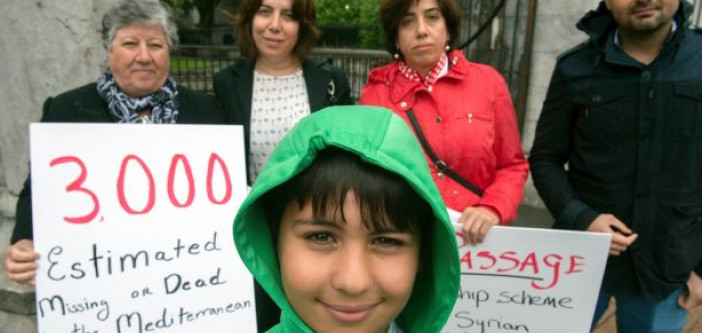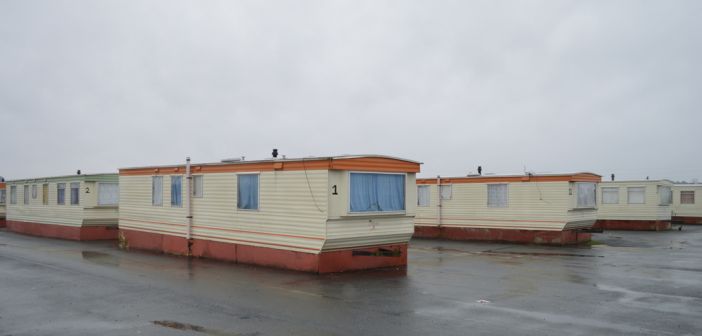Marginalisation and Oppression | Child Protection & Migrant Families in Ireland
Migrant families in Ireland are ten times more likely to find themselves subject to child protection interventions than native Irish families. This was the central message of a timely conference hosted by the New Communities Partnership (NCP) on Thursday March 30th. I was interested because, in my limited research with African women to date I had already noticed a widespread suspicion of child protection services. Among themselves, migrant women express bafflement at Irish parenting practices, accompanied by a deep dread that their children will be taken away from them for no discernible reason.
The Childcare Law Reporting Project (CCLRP) monitors court cases involving children, and is the only project that currently collects ethnicity data related to child protection cases. Dr. Carol Coulter shared the detailed analysis that the CCLRP has carried out in its reports. 26% of the cases they monitored in 2015 involved children with at least one migrant parent (this does not include Traveller children). A majority of these come from African countries, mainly West African.
According to Daniela Jurj of the NCP, there are three main reasons why migrant families find themselves at the receiving end of child protection interventions. In some cases, children have suffered violence or abuse in their homes. Other cases see domestic violence within the home, almost always against the mother. Many cases involve serious mental health problems among the parents – many of whom are living in Direct Provision or lived there for a period of time.

It’s common internationally for migrants to be over-represented in child protection interventions; international literature even identifies the most heavily represented nationalities. And it’s common in Ireland for members of any marginalised or oppressed group to be over-represented in such cases. Shocking though as these facts are, they are in no sense surprising to anybody who knows the field.
There is a natural focus on cultural differences, which certainly play a part. Parenting practices vary radically in different places. Judge Rosemary Horgan points out that the defence of “reasonable chastisement” was only removed from the statute books in Ireland in 2015. For a long time prior to this, it was generally accepted that children needed to be physically punished from time to time. A shift in attitudes came about slowly, over time. Today, African parents are far from the only ones to hit their children; but they are far more likely to justify the practice, and argue that it was done for the child’s own good. Several migrant parents described their sense of culture shock at encountering Ireland’s (imperfectly) “child-centred” laws and policies. It is a different paradigm, and one that requires adjustment. Nor does culture only relate to parenting practices. It can be difficult for service providers and community organisations to reach migrant parents, especially women, across barriers of language, literacy, and at times controlling family relationships.
Yet there is a delicate line to be drawn. All children in the state are entitled to the same protection and the same rights: there is no argument to be made for different standards for people from different cultural backgrounds. But standards need to be applied in a way that is culturally sensitive and appropriate. A balance should be struck between identifying risk and targeting people because of their difference. Dr. Coulter outlined examples on either side of the scales. On the side of high contextual risk: a young ethnic minority girl who was known to social services and yet only triggered a child protection intervention after she had been raped by seven men, with the collusion of her mother. On the side of over-intervention: a Roma family who moved often, accused by authorities of evading social services, while the mother said that she was escaping an abusive husband.

Culture is surely an issue, the different assumptions about good family life and good parenting, the expectations we have in Irish society of parents and families that migrants may not be aware of. If we look at the disproportionate numbers of migrant children in care though, Coulter argues that neither culture nor the social isolation of being a newcomer can fully explain the disparity. And it’s a stretch to describe racial targeting by social services as a culture clash. We know that Traveller families have experienced systematic racism at the hands of state services: it’s fair to be on the look-out for comparable treatment towards ethnic minorities.
Judge Horgan argued that at times the cultural explanation is the easiest one to reach for, although material realities are often equally important. Across the board, people living in poverty are more heavily represented in child protection services – it is not necessarily different for migrants. The issue of migrant children in care is in some senses just another feature of the growing lack of social inclusion in Irish society.
One important particularity though is that of Direct Provision (DP). Years spent in DP centres are in themselves traumatising, and for those who do successfully leave DP centres to begin documented lives in Ireland, a second period of adjustment must begin. The impact on the mental health of parents and children can be devastating. In circumstances as stressful and dehumanising as these, a parent’s capabilities to do right by their children are seriously eroded. When state services become involved, problems can be worsened rather than resolved.

New Communities Partnership were among the first to recognise the disproportionate numbers of migrant families in child protection interventions, and the unique support needs those families had, just to be able to engage with the system. Daniela Jurj, national coordinator of the Migrant Family Support Service (MFSS), described their work as being one of “cultural brokering”, mediating between baffled families and often impenetrable state services.
Anybody who has been at the receiving end of state bureacracy can appreciate the need for this type of brokering, particularly for people who are new to Irish culture, language and society as well as its bureacracy. And NCP’s engagement hasn’t stopped there. Rather than providing a narrow service to families in crisis, it works closely with Tusla to support cultural awareness among service-providers, and to build understanding among new communities long before social workers and courts get involved. I got a strong sense of determination and solidarity between professionals, dedicated to making the system work. When Daniela thanked social workers for the difficult work they do, it got the longest and most heartfelt applause of the day.
Of course, if the system is broken, this careful and dedicated work of maintenance must feel frustrating. And Eifrion Williams, representing Tusla, stated clearly that the system was broken, and that maintaining the status quo was not an option. Cultural brokering can certainly smooth out difficulties in our determinedly mono-cultural services. But to really get to the root of the disproportionate number of migrant families in child protection interventions, there are other issues to be tackled: the continuing system of Direct Provision; lack of funding for domestic violence prevention and response; a profound lack of diversity among social services of all types in Ireland; and the absence of migrant-led organisations in policy making.
Not to mention the massive stretch on social workers, district courts and all other parts of the child protection system. And above all, an ever-growing number of people living in poverty are excluded from the support they need in Ireland. Conference participants seemed to agree unanimously that migrant families should be engaged before moments of crisis, before social workers or courts became involved. That is certainly a job of breaking down cultural boundaries; but a more effective job might be done by breaking down material and political boundaries to social inclusion.
